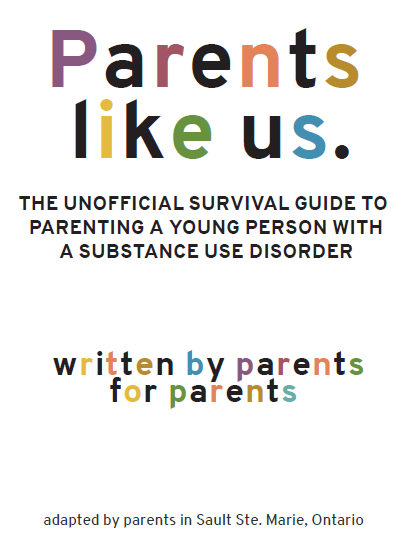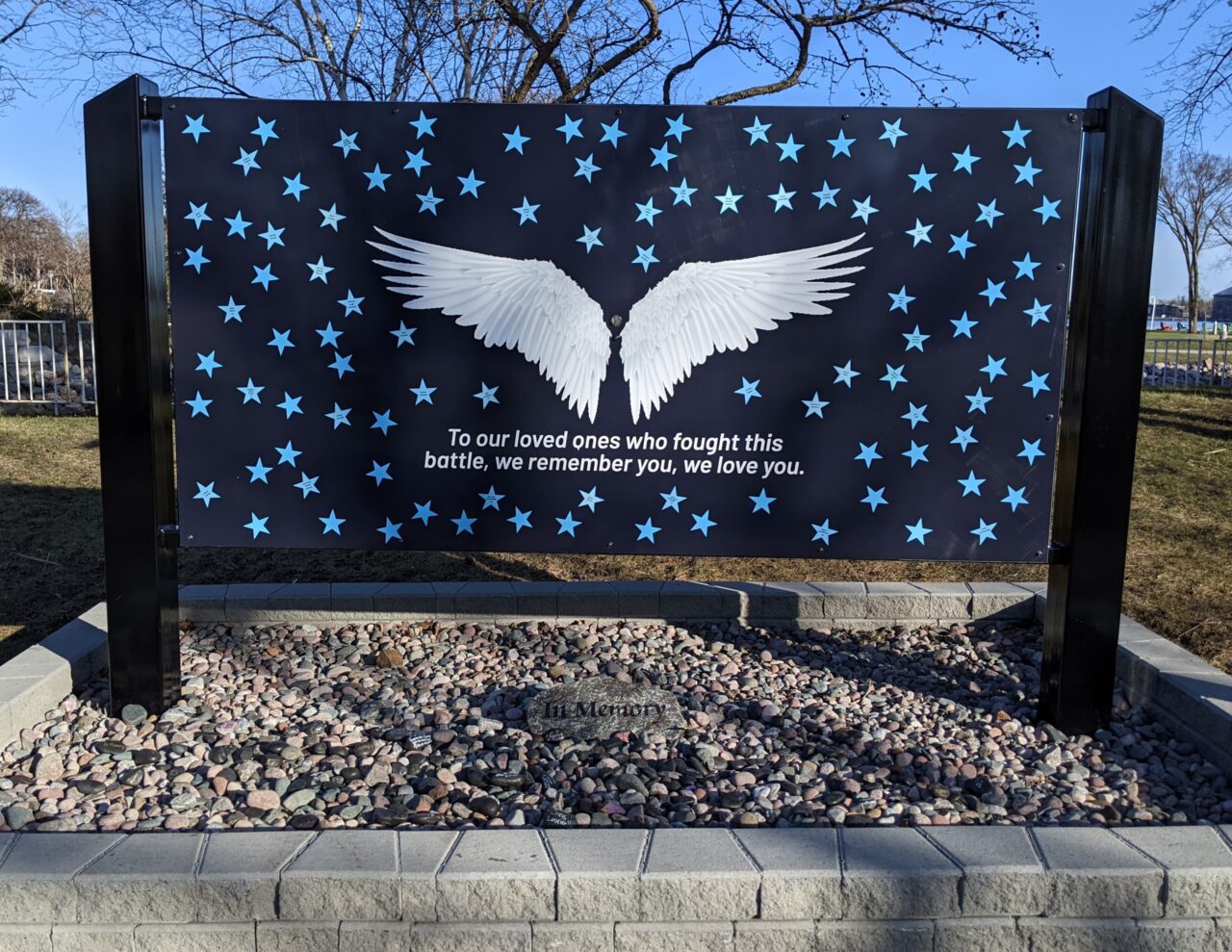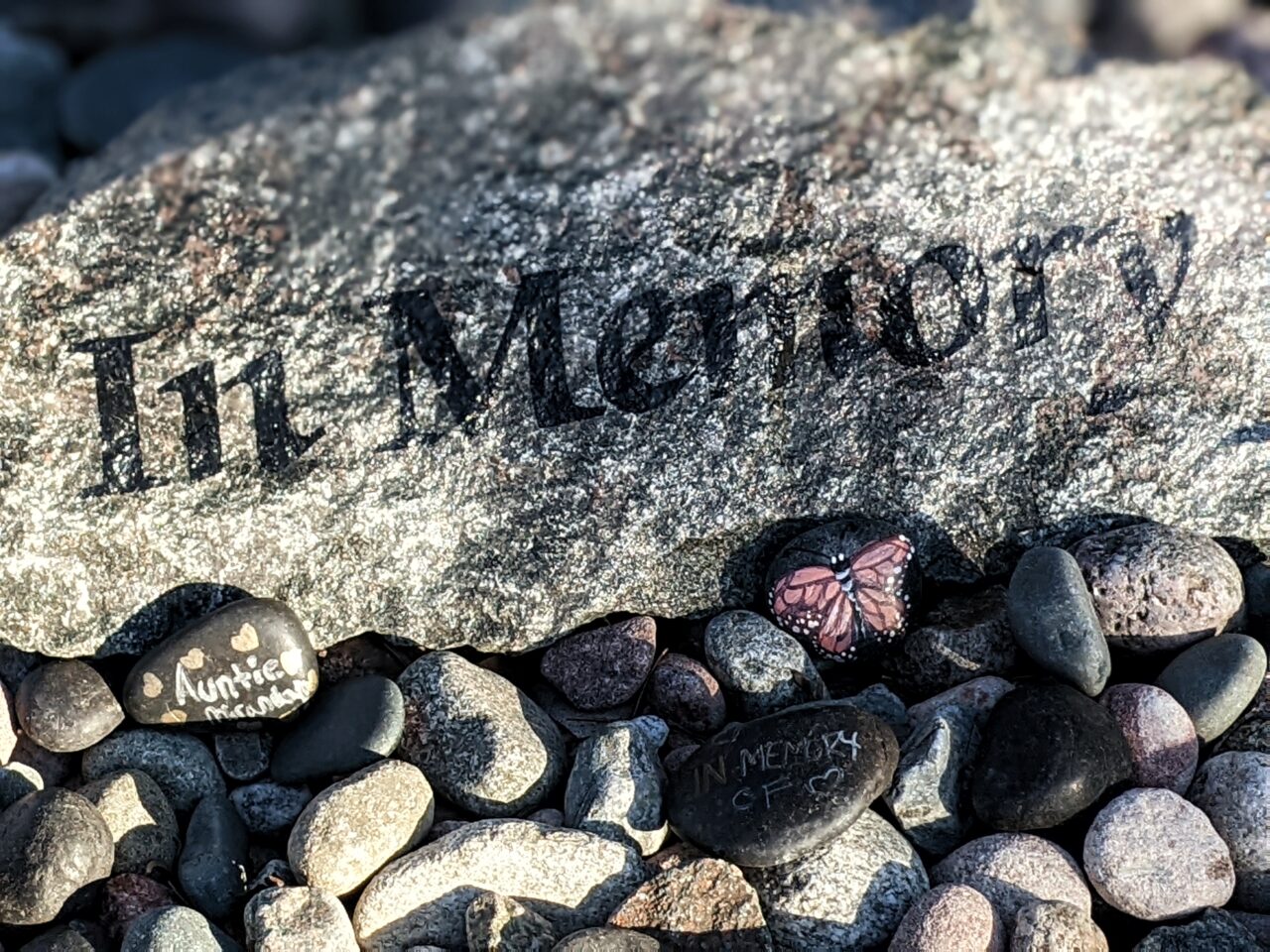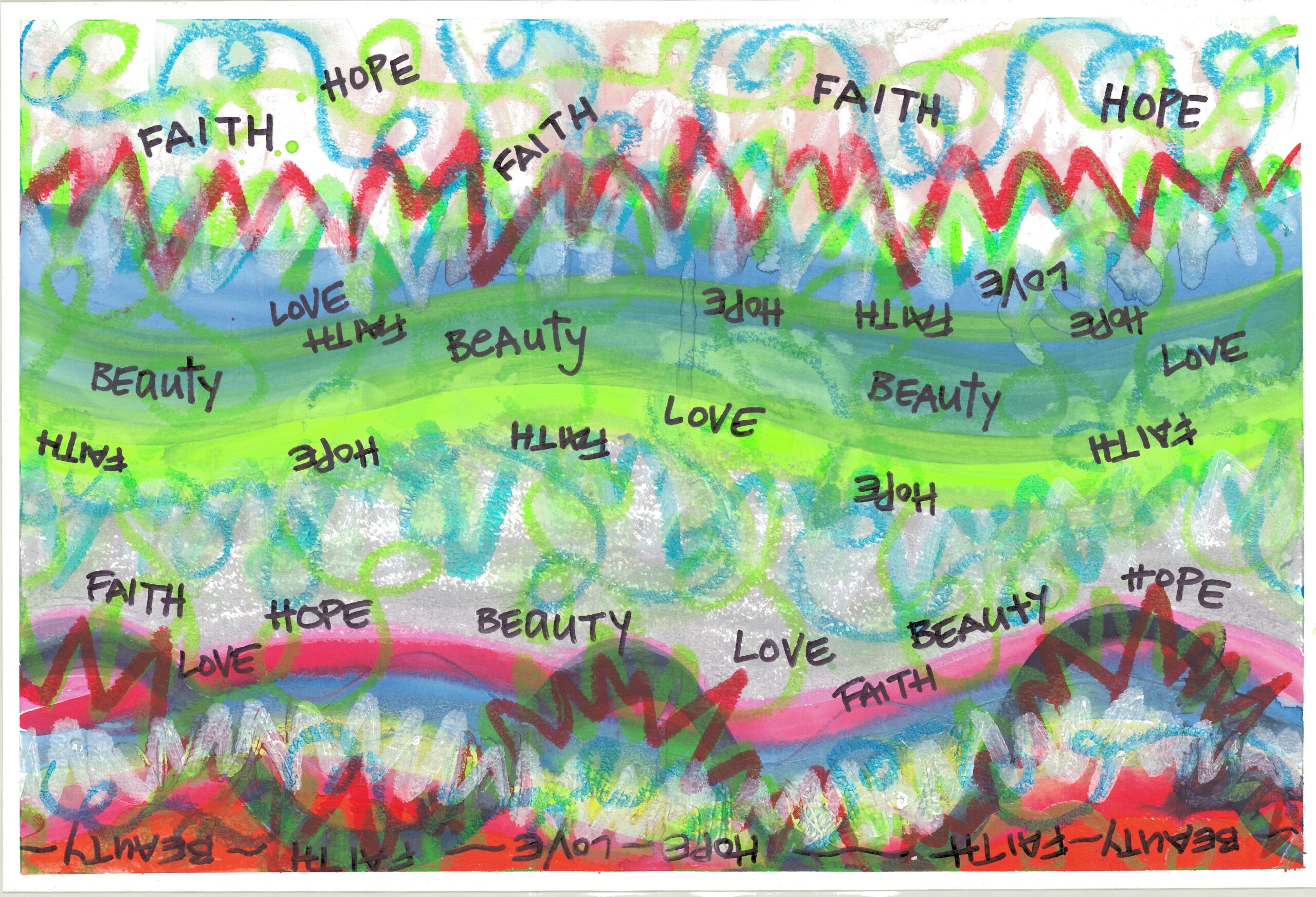
One day you will tell your story of how you overcame what you went through and it will be someone else’s survival guide.
– Brené Brown Tweet
Contents
To navigate through the Parent Like Us handbook, click on the icons below.
Acknowledgements
We would like to begin by acknowledging that this handbook was developed in Sault Ste. Marie ON which is situated upon the traditional territory of the Anishinaabeg, specifically Garden River First Nation and Batchewana First Nation, as well as the Métis People. This land, Bawating, is the historic meeting place for Indigenous people across North America. This territory is included in the Robinson Huron Treaty of 1850. We say miigwech to all of the Indigenous partners for sharing this land and recognize their enduring presence.
We are parents and caregivers in Sault Ste. Marie, Ontario, who contributed to the development of this handbook over many facilitated group sessions. Thank you to those who took part in the creation of this handbook and have shared their stories and experiences to help other parents and caregivers who are supporting a young person with substance use disorder. This handbook would not have been possible without you.
We would like to acknowledge the substantial work of parents in Victoria B.C for the creation of the original version of the Parents Like Us handbook, which can be found here: Foundry BC – Parents like us handbook. Many of the thoughts, ideas and experiences shared in this handbook originated with you but were shared among us as parents in Sault Ste. Marie. Your words resonated deeply, so we have built off your voice in our efforts to produce a local handbook to support our community. Without your efforts, this work would not have been possible.
We would like to acknowledge the role of Sault Area Hospital in the creation of this handbook. The dedication to improving care for this vulnerable population has not wavered. Sault Area Hospital is committed to working with our community partners and provide evidenced-informed care, closer to home, focusing on individual needs within a safe and suitable environment. The team continues to be driven to improve the experiences of patients and their families navigating substance use disorders. Our hope is that this handbook will support you as you navigate the care of your loved one.
Production of this handbook has been made possible through a financial contribution from a partnership between Sault Area Hospital and the Canadian Centre on Substance Use and Addiction (CCSA). The views expressed herein do not necessarily represent the views of SAH, CCSA, or its funders.
During the months of April to June 2022, members of the ‘Parents Like Us Project’ advisory group as well as clients of Sault Area Hospital ‘A New Day’ Concurrent Disorders Intensive Day Treatment Pilot Project were invited to engage in non-clinical Art-as-Therapy processes in the creation of art works to be included in the Parents Like Us booklet.
Facilitated by art therapist and visual artist, Maria Parrella-Ilaria, the six two-hour (2hr) art-making sessions were offered on Fridays and Saturdays and featured access to a variety of mark making materials such as oil/chalk pastels, tempera paint sticks, watercolour markers, acrylic paints and a variety of papers. Participants were asked to share concepts and feelings that best described their experiences in coping with a loved one struggling with addictions; in the case of ‘New Day’ participants, the focus was more clearly delineated by the struggle of moving from ‘addiction’ to ‘recovery’ via a rollercoaster of emotional peaks and valleys.
For the most part, participants in the sessions created their own art pieces; at times ‘group works’ were created with the art therapist taking the lead in starting the image. Advisory group members also asked that the art therapist photograph the ‘Wings and Stars’ memorial, currently installed on the lawn of the Sault Ste. Marie Civic Centre, which was created by grieving community members to memorialize those lost to addictions.
New Day clients presented as more anxious about how to proceed and over a number of sessions, asked the art therapist to draw/paint concepts they felt needed to be shared in a double panel group piece titled ‘Addiction + Recovery’. The work depicts a chaotic disruption along the yellow brick road of everyday life. This abrupt ‘break’ results in a reliance on addictive behaviors/substances to soothe and numb. Clients report that abusing substances (straight dark road—panel 1) is seen as ‘easier’ than dealing with the pain of one’s trauma. The struggle starts when one commits to recovery (jagged road—panel 2) and must face the truth of one’s lived experience. Ultimately, it is discovered that in facing one’s grief and pain, one may find peace and be reborn, much like the Phoenix.
Maria Parrella-ilaria, AOCA, BFA, MA
Art Therapist/Visual Artist
www.OpenArtStudios.ca


Introduction
WHO WE ARE
Contributors to this book are parents from across Canada. Parents like you. We have many similarities and differences, but one thing that we all have in common is that we have parented a young person who has had a severe substance use disorder. We have built on the substantial foundation from parents in Victoria, B.C to produce a handbook that meets the local needs of Algoma.[1]
You might be feeling as though you have lost control: control over yourself, control over your young person and control over your options in terms of what you can do to help them. You may feel a loss of the parent you once were and the relationship you had with your young person, of what you had hoped to be as a parent and what you had hoped for your young person. You might feel embarrassed to reach out to others. Please do not let that prevent you from getting the help you need.
We have found that one of the most helpful things that we have done for ourselves and for our families is reach out and join a support group. This journey is a marathon, not a sprint, and knowing that there are others who understand what you are going through is a lifesaver.
Whether your young person is experimenting with substances or has developed a substance use disorder, this handbook may help you feel connected with other parents and caregivers going through similar experiences. This handbook is a starting point in the search for connection, understanding, support and resources. You do not have to read this handbook from front to back. Each section contains information and stories that we hope will help you with different parts of your journey. The parents who contributed to this adapted handbook all live in Sault Ste. Marie, Ontario, Canada. We have all navigated the system here in different ways and have accessed different resources. We have learned that there is no straight line for our young people or our families to recover.
If you are reading this handbook today and can identify with the stories, our hope is that you will reach out for support. We are a non-judgmental group of parents and caregivers who get it. Nothing you say will surprise us. We will laugh and we will cry with you. We will be interested in your young person. We will grow to love them and cheer them on, even though we may never meet them. We will be there for you as you go through some of your darkest days, holding a flicker of hope when you cannot find one yourself. We encourage you to find resources and support that works for you.
We are thankful to Sault Area Hospital and the Canadian Centre for Substance Use and Addiction for leading this work and believing that this handbook will be helpful for families who navigate the unchartered waters of parenting a young person with a substance use disorder.
The Algoma district in Northern Ontario is a highly impacted region of the country, which is mainly due to the increasing toxicity of the drug market. Fentanyl is a synthetic opioid that has severely contaminated the illicit drug supply, as it is cheaper to produce given its potency.[2] Fentanyl is 20–40 times stronger than heroin, 100 times stronger than morphine and has been linked with a striking increase in overdose deaths. As parents, we want to advocate for a harm reduction approach that recognizes substance use as a health condition rather than criminal behaviour, to minimize health and social harms related to substance use, including drug overdoses.
There is always hope. Everyday is a new day and you’re not alone.
SMS Parent Tweet
LANGUAGE
Throughout this handbook, we refer to our children as ‘young people’ to include caregivers and guardians who also parent a young person with a substance use disorder. We have also made an effort to use non-stigmatizing language to talk about our young people’s substance use. You can refer to Overcoming Stigma Through Language (CCSA & CAPSA)[3] for practical language tips to reduce the stigma around substance use and addiction.

Footnotes
[1] We would like to acknowledge the work of parents in Victoria B.C for the creation of the original version of the Parents Like Us handbook. Without your efforts, this work would not have been possible.
[2] Health Canada. (October 2, 2020). Fentanyl. Available at: www.canada.ca/en/healthcanada/services/substance-use/controlled-illegal-drugs/fentanyl.html
[3] Available at: www.ccsa.ca/sites/default/files/2019-09/CCSA-Language-and-Stigma-in-Substance-Use-Addiction-Guide-2019-en.pdf
